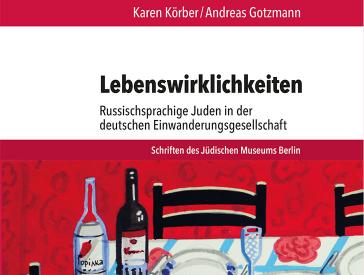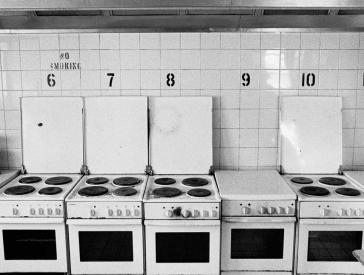“Everyday Realities: Contemporary Jewish Life in Germany”
Fellow Karen Körber and Her Research
Sociologist Karen Körber was the first fellow of the Jewish Museum Berlin. Her project, titled “Everyday Realities: Contemporary Jewish Life in Germany,” ran from 2012 to 2014.
Research Project
As part of her fellowship, Karen Körber completed the first nationwide qualitative and quantitative study of young Russian-speaking Jews in Germany. Between October and December 2013, Körber surveyed 267 men and women aged twenty to forty using an online questionnaire. The respondents included members and non-members of Germany’s Jewish communities. Körber also conducted informal guided interviews with thirty young adults – half in Berlin, the city with the largest Jewish community in Germany, and the other half in other parts of the country. Central topics were their educational backgrounds, professional careers, personal lifestyles, Jewish identity and practices, chosen social affiliations, ties to Germany, transnational connections, and self-definition practices.
Key Findings
- Second-generation Russian-Jewish immigrants embrace their Jewish identity. Unlike their Soviet-influenced families, these young people confidently self-identify as Jews.
- Their turn toward Judaism has gone hand in hand with a secular liberal view of Jewishness and a turn away from the Jewish communities. More than a third of the respondents were not members of a Jewish community. They believed Jewishness was determined more by Jewish culture, festivals, movies, and music than by the Jewish religion.
- The respondents enjoyed a better-than-average employment situation thanks to their high levels of education. Compared with their parents, many of whom were unemployed or had unsteady, low-paying jobs after arriving in Germany, members of the second generation clearly saw themselves as an upwardly mobile group in society.
- When questioned about the future of the Jewish community in Germany, the vast majority expressed hope for a secular, pluralistic European Judaism.
The study’s key findings were presented for the first time at the international conference “Contemporary Jewish Life in a Global Modernity: Comparative European Perspectives on a Changing Diaspora,” which was held at the Jewish Museum Berlin on 11–12 December 2014. The conference examined the opportunities, challenges, and conflicts that define contemporary Jewish life in an ethnically, culturally, and religiously diverse Europe.
Curriculum vitae (as of 2012)
Download (PDF / 25.7 KB / in German / not accessible)
Publications
Karen Körber’s study will appear in the “Studies of the Jewish Museum Berlin” series.
Körber has also edited the essay collection Russisch-jüdische Gegenwart in Deutschland: Interdisziplinäre Perspektiven auf eine Diaspora im Wandel (Russian Jews in Germany Today: Interdisciplinary Perspectives on a Changing Diaspora), which was published by Vandenhoeck & Ruprecht in 2015.
With the support of the Friends of the Jewish Museum Berlin



 X
X

 X
X


